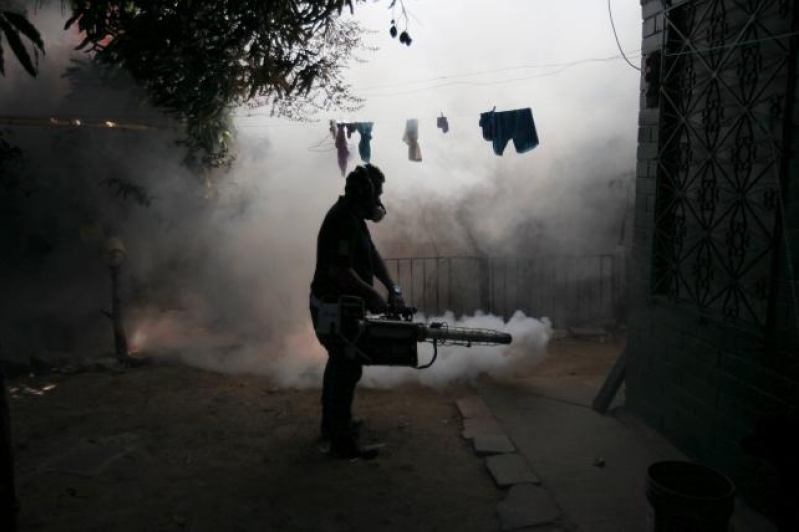
A Virginia resident who traveled outside the United States has tested positive for Zika virus, an emerging mosquito-borne virus, according to Associated Press, citing health official. The virus, which has no vaccines or treatment, has been linked to brain damage in thousands of babies in Brazil.
Virginia Health Commissioner Dr. Marissa Levine said the resident traveled to a country where the Zika virus transmission is ongoing, according to AP.
Levine said this person poses no risk to other residents, because it is not mosquito season in Virginia, AP reported.
Increased cases of Zika virus, an emerging mosquito-borne virus first identified in Uganda in 1947, are being identified in the past week in various continents and geographies, states World Health Organization officials. People catch Zika virus by being bitten by an infected Aedes mosquito, the same type that spreads yellow fever, dengue and chikungunya. Outbreaks of this virus had been circulating through the Americas, Asia and Africa, and now is spreading.
Pregnant women are warned not to travel to areas considered to be high-risk for this infection, as the disease is suspected of causing birth defects. Zika "is not spread directly from person to person," according to official guidance issued by Public Health England.
Aedes mosquitoes are present in all the region's countries except Canada and continental Chile, stated WHO officials said in a statement.
People with Zika virus disease usually have a mild fever, skin rash (exanthema), headaches and conjunctivitis. These symptoms normally last for two to seven days. The incubation period (the time from exposure to symptoms) of Zika virus disease is not clear, but is likely to be a few days. Diagnosis is done through blood samples.
There is no specific treatment or vaccine currently available, according to WHO sources.
To lower the risk of being infected with Zika virus, health officials recommend people use insect repellent; cover as much of the body as possible with long, light-colored clothing; empty, clean or cover containers that can hold water to remove places mosquitoes can breed; and sleep under mosquito nets.
On Jan. 18, the first laboratory-confirmed cases of locally-acquired Zika virus were confirmed on the Caribbean island of Saint Martin, as well as in Guadeloupe. Two days earlier, a pregnant woman in Bolivia, with no previous travel history, also was confirmed with Zika. Between 14 and 15 January 2016, more cases were discovered in Guyana, Barbados, and Ecuador. On Jan. 21, five cases of Zika were found in Haiti. Two Zika cases were confirmed in Germany at the beginning of January.
Three Britons contracted Zika virus, which may cause severe birth defects, after traveling to South and Central America, reported BBC on Saturday.
Basic precautions for protection from mosquito bites should be taken by people traveling to high-risk areas, especially pregnant women, recommends WHO staffers.
Questions and comments on the WHO Facebook page focus on how the disease is spreading and how to try to defend oneself. One poster, Marsinah Murakami, offered that the natural way to deal with viruses is to drink four drops of oil of oregano in water every day. Another woman, Viva Cox, said she had been eating more garlic because bugs don't like the odor it radiates. She said garlic works even when sunblock lotions are used.
According to the Pan American Health Organization website, a full list of known Zika cases during 2016 are: Barbados, Bolivia, Brazil, Colombia, Dominican Republic, Ecuador, El Salvador, French Guiana, Guadeloupe, Guatemala, Guyana, Haiti, Honduras, Martinique, Mexico, Panama, Paraguay, Puerto Rico, Saint Martin, Suriname, Venezuela.







